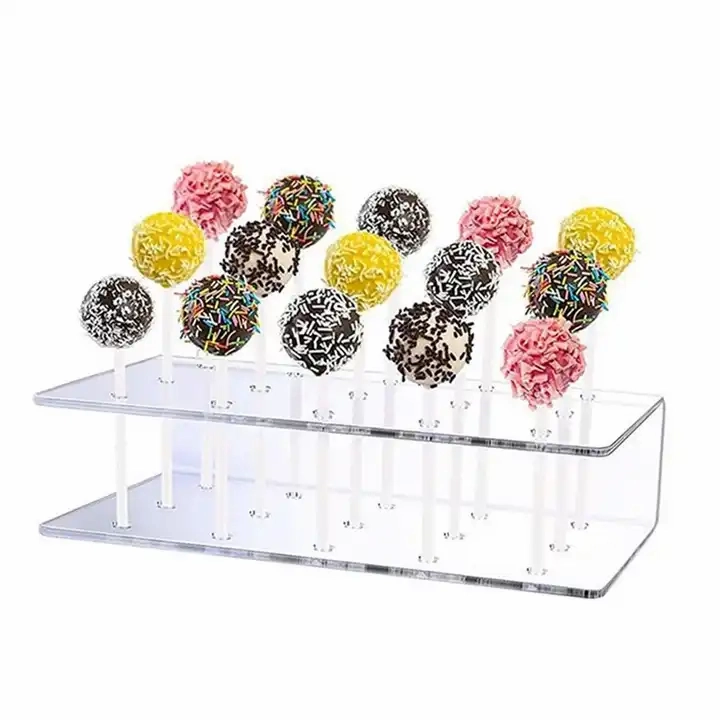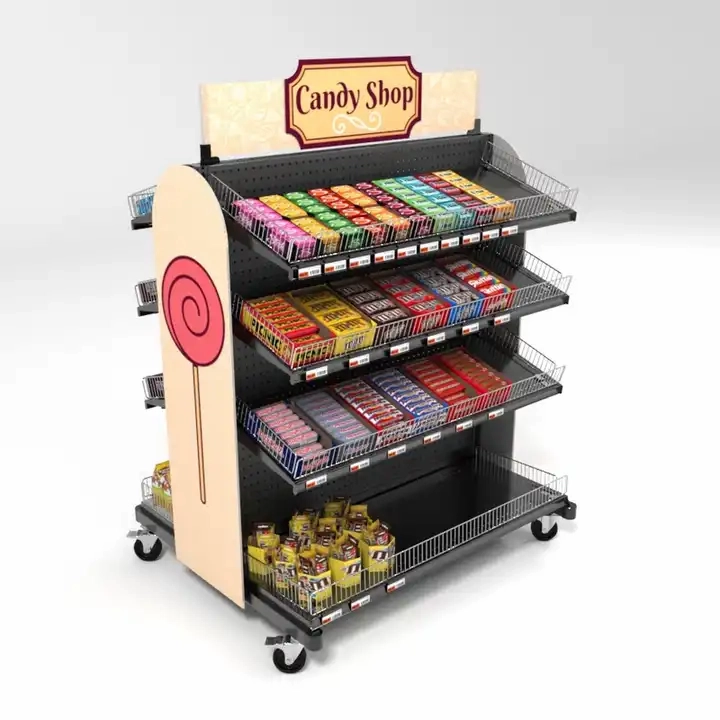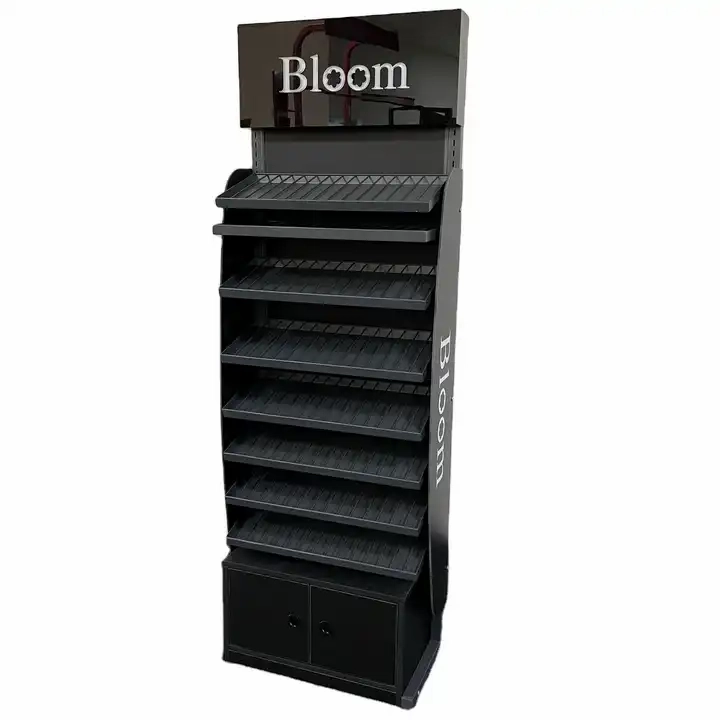Content Menu
● Understanding Display Stands
● Key Factors in Choosing Display Stands
>> Purpose and Intended Use
>> Available Space
>> Budget Constraints
>> Brand Image and Style
>> Customization Needs
>> Portability and Setup
>> Durability and Maintenance
● Types of Display Stands
● Budget Considerations for Display Stands
>> Material Impact on Price
>> Quantity and Bulk Discounts
>> Customization Costs
>> Rental vs. Purchase
>> Practical Tips to Save Costs
● Style and Branding Integration
>> How to Achieve Style Cohesion
>> The Power of First Impressions
>> Enhancing Customer Engagement
● Customization Options for Different Needs
>> Common Customization Features
>> Prototyping and Samples
● Maintenance and Longevity
>> Tips for Maintenance
● Real-World Examples of Effective Display Stands
>> Retail Store Launch
>> Trade Show Success
>> Boutique Shop Enhancement
>> Event Pop-Up Experience
● Conclusion
● FAQ
>> 1. What types of display stands are best for small retail spaces?
>> 2. How can I ensure my display stands reflect my brand identity?
>> 3. Are cardboard display stands durable enough for long-term use?
>> 4. What are the advantages of modular display stands?
>> 5. Can display stands be made from eco-friendly materials?
In today's competitive market, display stands serve as the silent salesperson for your brand, product, or service. Whether at a trade show, in a retail store, during an event, or within your office, the right display stands can elevate your product visibility, attract attention, and create a professional presentation. However, with a variety of designs, materials, and customization options available, finding the ideal display stands that match both your style and budget can seem overwhelming.
This comprehensive guide explores how to choose display stands that align with your financial considerations and aesthetic preferences. It covers materials, customization, comparison of different types, practical considerations for use, and how to maximize the value you get from your investment.

Understanding Display Stands
Display stands are structures crafted to showcase products, marketing materials, or promotional items in a visually appealing and accessible way. They play a crucial role in presenting your offerings professionally, reinforcing your brand, and creating a memorable impression.
Common uses of display stands include retail stores for merchandise promotion, trade shows and exhibitions, office lobbies and reception areas, and product launches or pop-up events. Display stands come in various shapes and sizes, enabling tailored use for different product categories, space constraints, and marketing objectives.
Key Factors in Choosing Display Stands
Purpose and Intended Use
The first step in selecting display stands is to clearly identify what you plan to display. Products, brochures, promotional materials, or samples each require different display styles. For example, a brochure holder prioritizes organization and easy access, while a floor display stand may highlight large merchandise. Selecting stands suited to your purpose helps avoid unnecessary features and ensures you get the best presentation for your investment.
Available Space
Evaluate the physical location where the display stand will be used. Consider room for walking, customer interaction, and complementary store fixtures. Display stands that overwhelm a space can deter customers, while stands that are too small may not attract sufficient attention. Measuring your available space and planning foot traffic flow leads to smarter display choices.
Budget Constraints
Before diving into materials or designs, establish a budget range that guides your purchasing decision. Setting parameters early helps narrow options and prevents overspending. It also encourages more creative choices that maximize value without compromising style or functionality.
Brand Image and Style
Display stands should seamlessly integrate with your brand identity. Consider the tone your company wishes to convey — whether modern and sleek, warm and rustic, or bold and colorful. The design, color scheme, and finish of your display stand influence customer perception and reinforce your market positioning.
Customization Needs
Many businesses benefit from customized display stands that highlight product uniqueness or accommodate special features such as adjustable shelves, lighting, or interactive elements. Customization allows your brand to shine through while increasing customer engagement and accessibility.
Portability and Setup
If your display stands are intended for trade shows or temporary events, portability and ease of setup are crucial. Lightweight, modular designs enable quick assembly and efficient transportation, reducing labor costs and stress.
Durability and Maintenance
Especially for long-term use, durable materials such as acrylic, metal, or thick cardboard ensure display stands withstand wear and tear. Consider also how easy the stands are to clean and repair to extend their lifespan.
Types of Display Stands
Choosing the right type of display stand depends largely on your products and environment. Here are some common options and their best use cases:
- Floor Display Stands: These are freestanding structures typically used in retail settings. They range from simple cardboard units ideal for temporary promotions to sturdy metal or wood frames for permanent fixtures. Floor stands are excellent for large, eye-catching presentations.
- Countertop Display Stands: Designed for placement on counters, these compact stands are perfect for point-of-sale materials like brochures, small products, or promotional items. Made often from acrylic or sturdy plastic, they maximize limited space.
- Banner Displays: Portable and versatile, banner displays are commonly used at trade shows or exhibitions. They utilize fabric or vinyl materials, often printed with logos and messages, and can be rolled or folded for transport.
- Brochure Holders: Specialized display stands for organizing brochures, catalogs, or flyers. They come in wall-mounted or freestanding designs and help customers easily access literature.
- Pegboard Displays: Ideal for hanging small items such as accessories or tools. Constructed from metal or plastic, pegboard displays use hooks to showcase products efficiently.
- Rotating Stands: These stands rotate, allowing customers to view multiple products in one place. They are often used for compact merchandise and maximize space usage.
- Customized Booths: For major exhibitions or brand activations, customized booth displays offer a fully branded experience with multiple elements like counters, banners, digital screens, shelving, and lighting.
Budget Considerations for Display Stands
Material Impact on Price
Material choice is one of the biggest factors influencing display stand cost. Cardboard stands provide a cost-effective solution and are ideal for short-term promotions or seasonal campaigns. However, they may lack durability for extended or repeat use.
Acrylic and plastic stands offer mid-range pricing with versatility, allowing sharper designs and clear product visibility. They are reusable and adaptable to many contexts.
Metal and wood stands generally require more initial investment but offer exceptional durability and a premium look. Properly maintained, these can become long-term assets that support brand prestige.
Quantity and Bulk Discounts
Ordering larger quantities often reduces per-unit costs, especially when working with OEM suppliers or manufacturers specializing in printing and packaging solutions. Requesting quotes for different volumes can help you maximize your buying power.
Customization Costs
While customization enhances brand expression and product presentation, it also adds to production expenses. Features like printed graphics, integrated lighting, and custom shapes or sizes increase the complexity and cost. To manage this, consider mixing standard units with some custom stands or using removable, reusable graphic elements.
Rental vs. Purchase
For temporary setups such as trade shows, renting display stands may save money upfront and reduce storage needs. However, owning your stands offers brand control and cost benefits if you participate in frequent events or use them permanently.
Practical Tips to Save Costs
- Select modular designs adaptable for different product types and venues.
- Choose lightweight stands to cut down logistics costs.
- Invest in durability for fewer replacements over time.

Style and Branding Integration
Your display stands are a direct reflection of your brand identity. Customers often form opinions based on visual cues, so presenting a cohesive, attractive style is essential.
How to Achieve Style Cohesion
Incorporate your company's colors, logo, and graphic elements into the stand design. Use materials and shapes that complement your store or event environment and maintain consistent visuals across packaging and promotional materials.
For instance, if your brand identity is minimalistic and modern, acrylic stands with clean lines and neutral tones match perfectly. If your brand is rustic or eco-conscious, wood or recycled cardboard with natural finishes enhances the image.
The Power of First Impressions
A well-styled stand can positively influence customers' perception, suggesting professionalism, reliability, and value. Poorly designed or mismatched stands may undermine confidence in your products regardless of their quality.
Enhancing Customer Engagement
Consider adding elements such as integrated lighting to focus attention on products or digital features like QR codes for interactive experiences. These details create memorable presentations that encourage purchase or inquiry.
Customization Options for Different Needs
Custom display stands transform your product presentation into unique brand experiences tailored exactly to your needs.
Common Customization Features
- Adjustable Shelves and Hooks: Makes the stand flexible for different product sizes and shapes.
- Custom Shapes and Sizes: Tailoring the dimensions to fit your products precisely.
- Integrated LED Lighting: Enhances visibility and highlights product details especially in dim environments.
- Printed Graphics: Bold logos, campaign images, and product information help tell your story.
- Interactive Elements: QR codes, NFC tags, or tablets add digital engagement options.
- Eco-Friendly Materials: Using recycled or sustainably sourced materials promotes green branding.
Prototyping and Samples
Collaborating with experts to produce prototypes or mockups helps ensure the final product meets expectations. Examine samples closely for build quality, graphic clarity, and functionality before approving large print runs.
Maintenance and Longevity
Investing in high-quality display stands requires proper care to maintain their appearance and performance over time.
Tips for Maintenance
- Clean regularly with manufacturer-recommended products to avoid damage.
- Inspect for loose or broken parts and repair promptly.
- Store assembled stands safely or disassemble and pack properly during non-use periods.
- Avoid exposure to extreme weather or harsh chemicals.
Taking these steps protects your display stands from premature degradation and keeps your presentation sharp.
Real-World Examples of Effective Display Stands
Retail Store Launch
A natural cosmetics brand used custom cardboard floor stands with vivid printed messages highlighting ingredients and usage benefits. The eco-friendly look accompanied seasonal promotions, delivering both strong visual appeal and sustainability messaging.
Trade Show Success
A startup tech company invested in lightweight, modular banner stands equipped with easy-to-swap graphics for different event themes. The stands enabled quick setups and tear-downs while maintaining a professional presence.
Boutique Shop Enhancement
A boutique retailer enhanced their shop with elegant wooden countertop display stands featuring inset LED lights. The warm wooden texture matched their interior design, creating inviting displays for exclusive items and seasonal gift sets.
Event Pop-Up Experience
A food product company employed branded rotating stands at a pop-up event, allowing customers to explore various flavors dynamically. The stand's portability and small footprint maximized interaction in limited space.
Conclusion
Choosing the ideal display stands that fit your budget and style is key to boosting product visibility and strengthening your brand's presence in any setting. By carefully considering your purpose, space, budget, and brand identity, you can select between materials and designs that meet your unique needs. Balancing customization and cost, prioritizing portability and durability, and maintaining your displays ensures the most effective use of your investment.
Whether you opt for simple cardboard for short-term campaigns or fully customized metal stands for permanent retail placement, the right display stands connect your products with your customers in a compelling and professional way. They become essential tools in your marketing arsenal, helping attract attention and drive engagement that translates to sales.

FAQ
1. What types of display stands are best for small retail spaces?
Countertop display stands and wall-mounted options are ideal for small retail locations, maximizing limited space while ensuring your products remain visible and accessible to customers.
2. How can I ensure my display stands reflect my brand identity?
Incorporate your company's colors, logos, and overall design theme directly into the display stands. Consistent visual messaging between product packaging, promotional graphics, and display units creates a unified brand presence that customers recognize and trust.
3. Are cardboard display stands durable enough for long-term use?
Modern cardboard display stands, especially those engineered with reinforced features, are surprisingly strong and can support various weights. However, they are generally best suited for temporary or seasonal promotions rather than long-term, high-traffic use.
4. What are the advantages of modular display stands?
Modular display stands offer flexibility, portability, and ease of assembly. Their customizable nature allows businesses to adapt to different products, locations, and events without investing in entirely new displays, providing excellent cost-efficiency.
5. Can display stands be made from eco-friendly materials?
Yes, many manufacturers now offer eco-friendly materials such as recycled cardboard, sustainably sourced wood, and biodegradable plastics. Using these options supports environmental responsibility and appeals to eco-conscious consumers.
































